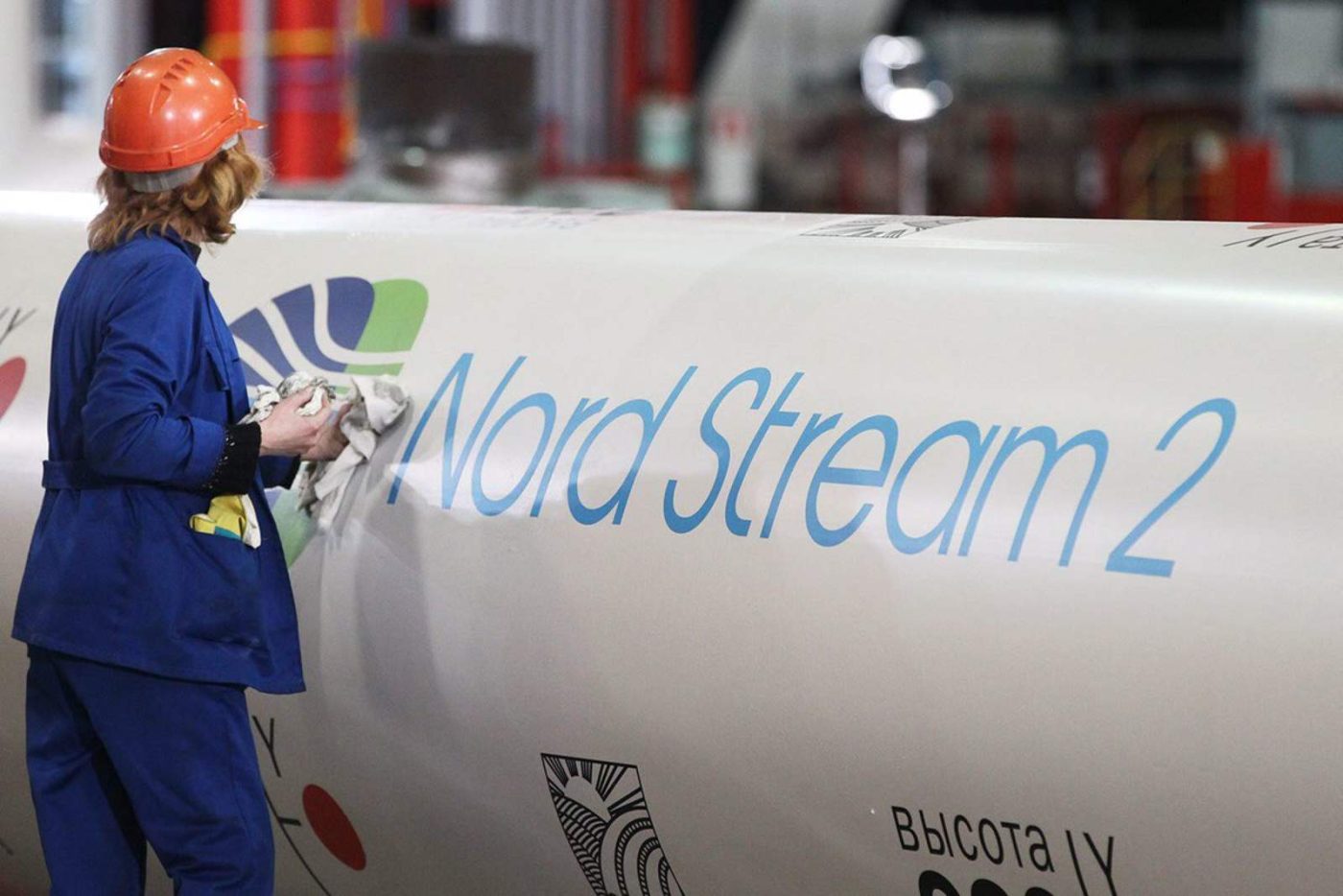What comes next for Nord Stream 2?
Only 150 kilometers of the Nord Stream 2 pipeline remain to be completed. However aside from a small 2.6-kilometer section of pipeline not subject to U.S. sanctions, Nord Stream 2 (NS2) has not been able to order any more construction since sanctions were first imposed in December 2019. To distract and cover-up from its failure to deal with the impact of these sanctions, Moscow is now vigorously stirring up its disinformation machine. Pipeline is being laid! We have found a way around the sanctions! The sanctions are extra-territorial! None of this is true but it does give the impression at least of activity and momentum and that pipeline is not in fact a dead pipeline.
Section 1242 of this year’s National Defense Authorization Act (NDAA) came into force on January 1st. It supplements and expands Section 7503 of the 2020 NDAA. Originally, sanctions applied only to vessels engaged in pipe-laying at 100 feet or more. This now is formally extended to include also “pipe-laying activities.” Sanctions apply to all foreign persons who have knowingly sold, leased, or provided such vessels for the project. Sanctions are also extended by Section 1242 to those facilitating, selling, leasing, or providing such vessels. Section 1242 then goes on to further extend the scope of the sanctions to those providing underwriting, insurance, or reinsurance services; providing services for technology upgrades, installation of welding equipment, retrofitting, vessel tethering and testing, inspection, and certification services.
The consequence of Section 1242 is therefore to significantly expand the scope of the sanctions under Section 7503. As with Section 7503, the new sanctions create a huge incentive to comply via their winding down provisions. Companies caught within the scope of the new sanctions can if they take good-faith measures to wind down their operations with NS2 within 30 days, avoid sanctions. Already a number of service providers to NS2, including Zurich insurance, the certification firm DNV-GL, the environmental services firm Ramboll and the provider of NS2’s heat generation plant, Bilfinger have withdrawn from the project. As we reach the January 31 deadline for the winding down period, more service companies will announce their withdrawal from the project.
In reaction to this, three principal lines of NS2 disinformation operations have been activated (usefully summarized in the Oxford located Centre for Energy Studies’ Quarterly Gas Review). These are:
The “Foundation Option.” Essentially, the government of Mecklenberg West Pomerania has decided to set up a public foundation under German law to assist NS2 in evading U.S. sanctions. The statutes provide for NS2 to appoint the Managing Director and 2 members of the board. The regional government will provide €200,000 in funding and NS2 will pony up €20 million. The regional energy minister has defended the project and argues that the foundation will help NS2 to avoid sanctions. “The foundation can buy machines and products now, before the new sanctions take effect, and store them if sanctions against companies were imposed these would be available for them to use.”
This simply will not work. Section 1242 does waive sanctions for governmental entities that are not business enterprises. However, one cannot interpret Section 1242 as providing any protection for the foundation. First, given it is expressly operating in support of a business enterprise and itself is not a governmental entity it is difficult to see how the waiver in Section 1242 can therefore apply to the foundation. Second, and perhaps decisively, Section 7503 includes an anti-circumvention provision against “facilitated deceptive or structured transactions.”
The danger for Mecklenburg West Pomerania is that the creation of the foundation could backfire significantly by exposing a wide range of persons in the region to the US anti-circumvention provisions. One can understand that as NS1 and NS2 land at Greifswald, there is likely to be strong support for the pipelines. But for the government to be participating in what is a Russian disinformation operation intended to give the impression that NS2 is still viable is very dangerous.
The U.S. Sanctions are extra-territorial, and thus illegal. This is another line that the NS2 lobby is pushing. It, too, is untrue. The principal sanctions are listed in Section 7503. They are a visa ban, property freezing, and prohibition of transactions in the territory of the United States or under the control or possession of the United States. These sanctions are all acts of the United States within its prerogatives and within its jurisdiction. They may have extra-territorial consequences, but they are not extra-territorial. It is for that reason that Bundestag’s own parliamentary research service concluded in a recent report that the U.S. sanctions are not in breach of international law.
The EU opposes the sanctions. This line of argument, whilst continually pushed out by the NS2 lobby, flies in the face of the most recent call by the European Parliament for Nord Stream 2 to be stopped. In a resolution on January 21, the Parliament voted overwhelmingly to the pipeline to be stopped by 581 to 50 votes.
The goal of this disinformation, as always, is to fundamentally muddy the waters, especially during the unavoidable chaos that any incoming U.S. administration faces. Narratives become realities on their own, and even if false, can shape final outcomes. One idea floating around is that the incoming Biden administration closely tie both NS2—operating, but fully compliant with EU law—and the Ukrainian transit network with a guaranteed long-term contract. The key problem in such an arrangement is how to ensure that any transit contract with Ukraine is actually honored by NS2’s owner, Gazprom.
Team Biden would clearly like to avoid having a battle with Chancellor Merkel over NS2. Equally, however, the new administration does not want to leave its allies, including Ukraine, vulnerable to Russian energy leverage. The truth is that the opponents of NS2 have a strong hand to play. They must not be distracted from this fundamental reality. Some kind of negotiated compromise with NS2’s boosters in Germany may be possible, but only if the European energy market is fundamentally reformed to ensure a level playing field.
Photo: Nord Stream 2 Pipeline on January 31, 2018. Credit: @mfa_russia
WP Post Author
Alan Riley
January 27, 2021
Common Crisis is a CEPA analytical series on the implications of COVID-19 for the transatlantic relationship. All opinions are those of the author and do not necessarily represent the position or views of the institutions they represent or the Center for European Policy Analysis.





